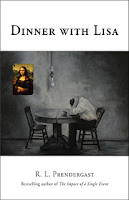Published October 2011 by Dekko Publishling
Source: this copy courtesy of the publisher & Premier Virtual Author Book Tours
After the death of his wife, Joseph Gaston boards a train with his four children and heads across Canada to Philibuster, Alberta where he hopes to make a better life for his family during the Great Depression. Joseph has a letter promising a job, a few dollars and a brother and sister-in-law who have offered to help.
Things get off to a rocky start when Joseph angers the chief of police by helping a hobo hopping off the train in Philibuster and then reports for his new job only to be told the position has already been filled. While his boys seem to flourish and his daughters become deeply attached to his sister-in-law, Joseph has a much harder time of it. The pressure of providing food and shelter for his family while maintaining his integrity, staying clear of the chief of police, and come to terms with his growing feelings for a Beth Hoogaboom, a woman who doesn't entirely fit in herself, weighs heavily on Joseph until one night he finally snaps.
Prendergast can certainly write - his description of a Black Blizzard is terrifying, I was certain I could navigate Philibuster's streets and recognize the landmarks clearly, and his portrayal of the life of the men and women left destitute and hopeless was heartbreaking. I cheered for Joseph and his family, I adored Beth Hoogaboom, I laughed at the antics of Joseph's brother, Henri and his friend, Raven.
Prendergast has clearly done his research and Dinner With Lisa makes the reader draw parallels between the time period the book covers and the present day.
I couldn't help but think of the lives of Mexican immigrants as I read this. And here, in what I think may be an actual piece of radio transcript, the reader can't help but think of the current world crisis:"As foreigners in a country where anyone not of British descent was deemed second-class, most Italian men could only find jobs in the most strenuous and poorest paying work situations."
I like a book that makes me think and you can clearly see that this one did. For the most part, Prendergast managed to do make these statements without coming off as preachy."...this world crisis would be brought to a swift conclusion if the world's leaders had the courage to say to their countries, "We have lived beyond our means too long, and must have the boldness to pursue such actions as might prove painful in the short term but will be to everyone's benefit in the long."
I'm was torn on what I wanted to say about this one. So torn that I've actually been scouring the internet to see what others thought of it - something I never do once I've started a book and before I'm done with my own review. In my searching, I found a site with an author's note detailing Prendergast's inspirations for writing this book and it became clear to me why I was having problems with this book. After his last book, Prendergast thought he was done with writing, but the stories his parents and aunts and uncles had told about growing up were stuck in his head, begging for an outlet. His great-uncle's stories about World War I, his father's stories about life on a dairy farm and his mother's stories about a neighborhood corner store all found their way into Dinner With Lisa. The problem with writing a novel this way is that it can be difficult to pull all of those tales together into a cohesive story. In Dinner With Lisa I felt like Prendergast has simply tried to do too much, there were too many distractions. As he tried to flesh out secondary characters with full backgrounds, Prendergast kept pulling me away from the Gaston family and the struggle of the common man during this terrible time and those were the stories I really wanted to read, the stories I really wanted to get caught up in.
Thanks to Teddy and Premier Virtual Author Blog Tours for including me on this tour. For other opinions of this book and to learn more about Prendergast's work, check out Premier's website.

No comments:
Post a Comment